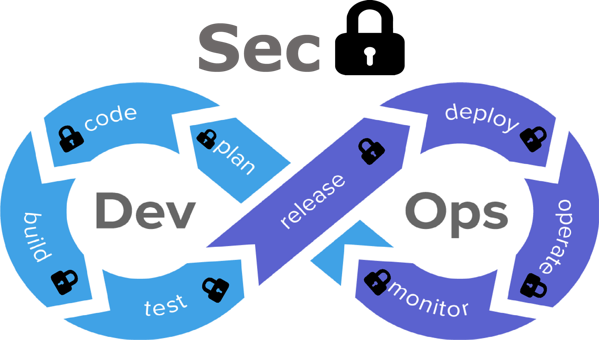DevSecOps: How It Works and Why Your Project Needs It
Software development is becoming democratized, decentralized. This openness greatly facilitates the developer's work and the distribution of knowledge in the software community. But it also camos with security vulnerabilities.
In 2019, vulnerabilities for npm grew by 47%. The same year, Maven Central noted that 78% of those vulnerabilities appeared in indirect dependencies. As a result, it is not surprising that according to GitLab's 2021 Global DevSecOps survey, 36% of respondents reported using Devsecops in their development, an impressive increase of 27% compared to 2020.
These are enough to highlight that we need to address the security threats that are expanding daily. Security flaws have the potential to introduce significant damage and become cost overruns for organizations.
Security and DevOps practices
Speed is one of the most essential principles of DevOps, but if outdated security practices are in place, they can undo the most effective DevOps initiatives. This creates friction between the DevOps initiative (faster delivery) and security testing (more reliable delivery), leading to slower delivery. That is why some security aspects are usually omitted in the DevOps approach.
Traditional development methods relegate security to the final phases of the project, and it is usually approached by an isolated and different team in charge of security analysis. This can lead to re-work
How can DevSecOps help us?
DevSecOps involves injecting an organization's security practices into its DevOps practices so that the various security checks and vulnerability scans are an intrinsic part of the pipelines and other continuous integration and deployment (CI/CD) processes.
DevSecOps involves the planning and execution of "security as code" by the development, operations, and business teams. This means security becomes a fundamental part of the organization's culture.
The intention is to incorporate security at all stages of the software development workflow, even if this is sometimes contradictory to traditional development models.

DevSecOps means that security should not be left to the final stages of the development cycle. DevSecOps is a way of approaching IT security with the idea that "we are all responsible for security."
Benefits of adopting DevSecOps
- Early detection of bugs and vulnerabilities.
- Use of open source libraries and packages with greater confidence.
- It brings security awareness to the entire team.
- Reduces risks and legal liabilities.
- It allows for fulfilling documented and implemented security requirements.
- Security becomes the first thing considered before writing a line of code.
- Safety is addressed in every change that is introduced into the system.
DevSecOps gives organizations the confidence that their applications are as secure as possible.
While no application is 100% secure, implementing DevSecOps ensures that security is the primary focus in all development activities, not an add-on activity that may or may not is addressed depending on development timelines and deadlines.
Share this
You May Also Like
These Related Stories

SEO writing for stores: tips to sell on Google

Agile: how to transform organizations while improving your life

Five Myths Preventing Financial Institutions to Become Data-Driven
Subscribe to
Pragma Blog
You will receive a monthly selection of our content on Digital Transformation.
